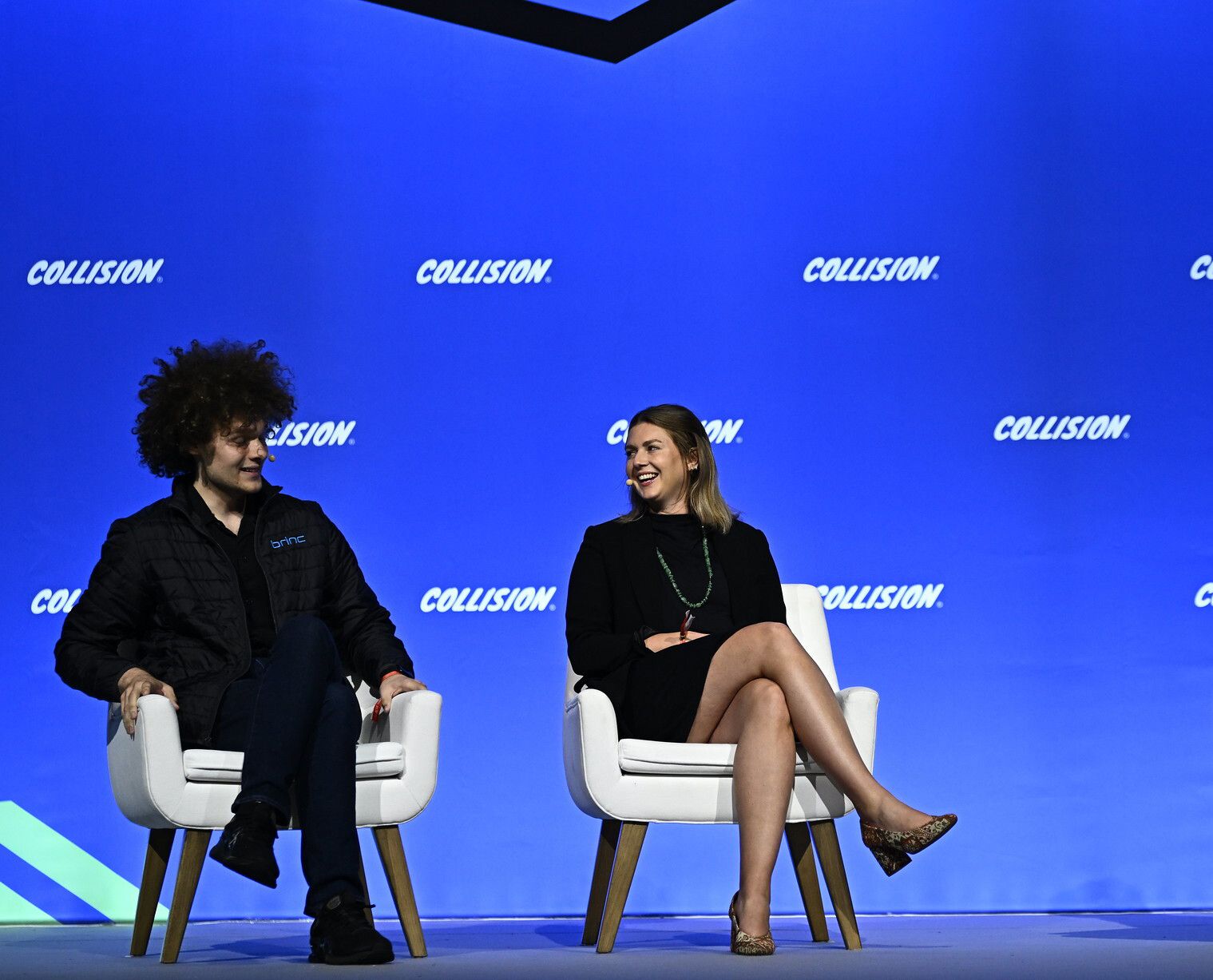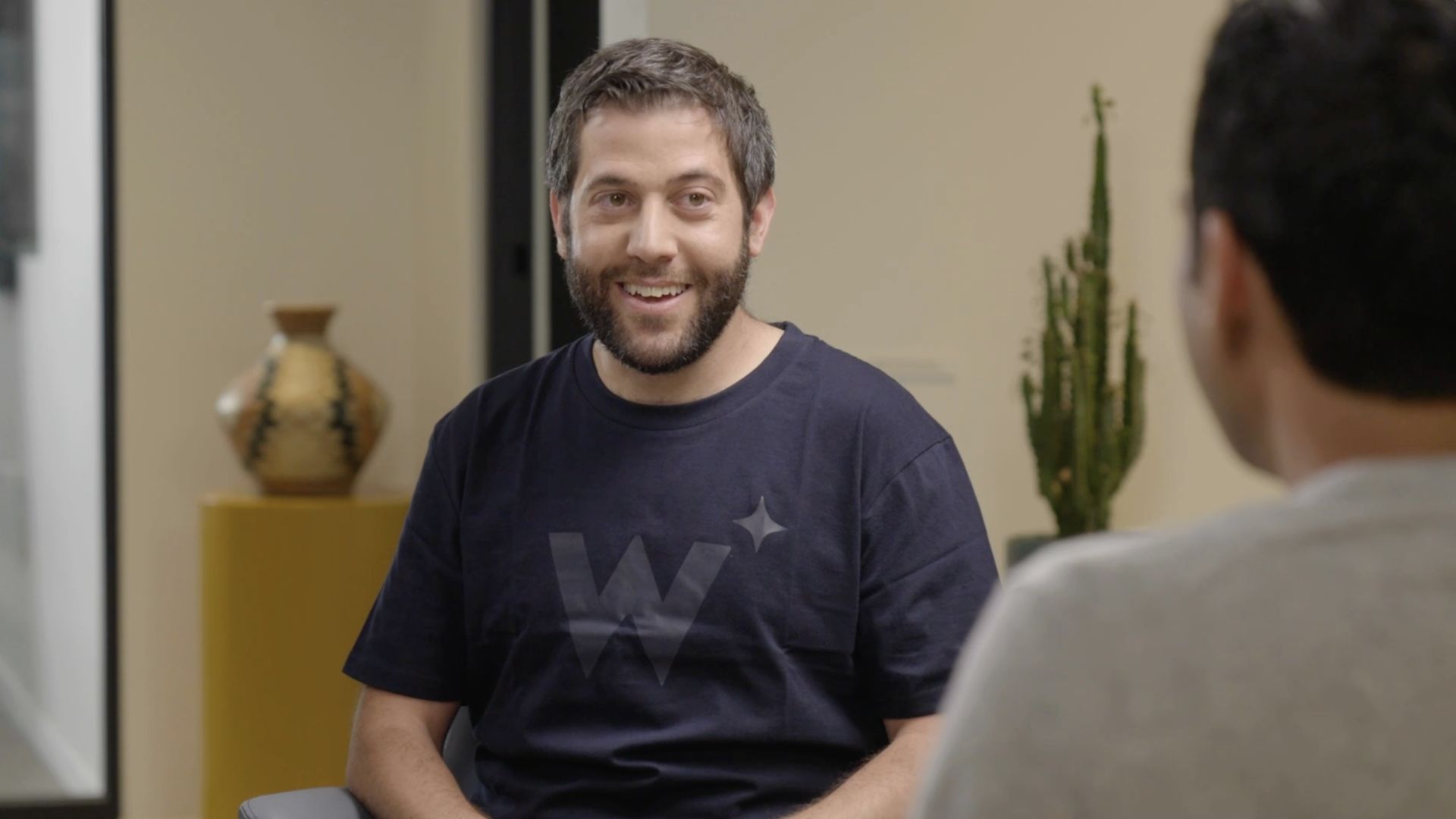Index OnAir: Early Stage Investing in Times of Uncertainty

For those starting a business, Covid-19 has turned the world upside down. Many entrepreneurs aren’t sure if investors have closed their doors, whether they should adjust their valuation or even if they should abandon all hope of finding funding at all. Our Partner Nina Achadjian talks to Satya Patel, Partner at Homebrew, and Aditya Agarwal, Partner at South Park Commons, on finding the best way forward in uncertain times.
Nina achadjian: These are truly unprecedented times, and there are many different views on what investors should do in an environment where we have [more than] 30 million unemployed. What changes are you seeing in terms of investment activity?
Satya patel: Venture capital is really three markets — seed stage, growth stage and later stage markets — and they are all reacting very differently. Growth and later stage markets are dealing with a lot of trouble in their portfolios, and it's unclear how to value companies because there's uncertainty about the public markets. Firms in series A and later have generally adopted the ‘wait and see’ approach. Some of those partners only do one or two investments a year, so they aren't in a rush. There's no downside to not doing a deal right now. The only exceptions are rocketships like Index is seeing with Figma and Notion.
But for seed investors, the situation is really active, and back to the same levels we were seeing before the shelter in place orders. There’s maybe a slight decrease in valuation relative to pre-COVID, but the seed market is investing in teams and products that are going to be on the market in 12 to 18 months. They can afford to wait and see if the market has turned around before they write a check.
Aditya agarwal: We haven’t actually slowed down, but we’ve become a bit more data-oriented, analyzing our funnel and investing pace. I’m of the view that the crisis will last for 6, 12 maybe 18 months and I think we'll have some new normal within 18 to 24 months, so that’s the time frame along which we’re making most of our investments. I’m comfortable having the same valuations, and that's the right thing to do by the entrepreneur. Anybody giving you a new valuation now as if they have some knowledge about the state of the world — well, it’s probably inaccurate.
There’s a fork in the road between pure software companies and those that have an offline component. Look at the public markets today and you’ll see continued strength in the pure software businesses, and that’s because of the pandemic. It will lead to new long term behaviors that are hard to predict today, but we can confidently say that it has massively accelerated trends that were already underway. Look at Azure, GCP, and AWS — we’ve seen two years’ of digitalization in two months. They are building on the strength of their core thesis and will come out of this pandemic looking even stronger. For companies with an offline component, the outcome is more variable.
Nina: How has investors’ risk tolerance changed in this environment?
Aditya: If the world is going through a seismic shift it will affect your thinking. It’s a good opportunity to return to the basics and exert discipline over your work. I don’t think our bar for risk tolerance has gone up much, but we are being more precise in both the observations we’re looking for and the conclusions we're drawing from those.
Satya: Most of our data coming from the Bay Area shows that seed deals that are pre-product and pre-traction are still getting done in the region of $6-10 million pre-money. Starting companies and investing in companies is about evaluating a series of risks. Nobody is taking more team risks than they were before, and investors are also trying to take less product risk which means they want to see more product developed or more conviction around the product thesis. But everyone's taking more market risk because there's just so much uncertainty.
Nina: How do you conduct due diligence and build trust and rapport with a team you’re meeting virtually? And what deals have you made during lockdown?
Satya: It’s a mental shift that investors have to make — they have to commit to making investments this way. We've closed three investments since sheltering in place, two of which were with teams we met entirely over Zoom. These were in markets where we've had a prepared mind for a long time, and it would be a lot harder if it was a market we didn’t know well. We spent a lot more time on Zoom, and were also able to backchannel reference extensively.
We made one investment based on the idea that culture and community within organizations will become even more important. It's a SaaS platform that helps drive employee engagement and reinforces company culture. Another investment uses machine learning models to help improve software quality based on automated testing. And we also invested in a B2B fintech infrastructure company tackling a very specific problem around the flow of funds, and the delay of sending money. These are all categories we have historically invested in — killer teams with unique insight addressing opportunities that are hopefully going to become large markets over time.
Aditya: At a high level, one of our recent investments is in a company that generates data and analyzes it to make business processes more efficient. There’s been this Cambrian explosion of data — multiple orders of magnitude, and that has all essentially been quantitative, numbers-based data. What if you could bring that same mindset to qualitative data? This will fundamentally change how a lot of companies are run: machine learning analyzing massive amounts of data in an automated way.
Nina: Any long-term themes you’re excited about?
Aditya: I’m interested to see if the time we’re spending at home and on screens is going to result in new kinds of consumer experiences. That market has been devoid of new innovation for a while because the big social media giants have sucked the oxygen out of grassroots innovation. I’d also like to see ideas that bring more fun to remote working in the way that Slack has done for enterprise collaboration.
Satya: We're trying to think about the opportunities around the second and third-order effects of the behavioral shifts. So if people are doing more telehealth, how do you get access to your past medical records more easily so they can get a proper diagnosis? If you're a restaurant doing more takeout and delivery, how do you deal with a very different flow of inventory management, ordering, and supply chain? We're led into innovation by the smart founders who are living and breathing these problems.
Nina: How are you supporting your portfolio companies during this time?
Aditya: One of the advantages of being a seed company is you don't need too much process and structure — you can just focus on the problem you're trying to solve. But during COVID-19, we've tried to be more hands-on, offering a weekly check-in for founders and rolling up our sleeves to help with specific problems. Founders need to be patient and also be really clear whether they want to be in offense mode, or shift to defense mode until they have a firmer idea of what the world looks like. Just don't get sucked into the doom and gloom.
Founders need to be patient and also be really clear whether they want to be in offense mode, or shift to defense mode until they have a firmer idea of what the world looks like. Just don't get sucked into the doom and gloom.Aditya Agarwal,
Partner at South Park Commons
Satya: Our priority has been to focus on the health and wellness of the teams, and there are a lot of complications for people who are taking care of elderly parents or have young kids. We advise they do everything they can to maintain and reinforce the culture of the company as everyone works remotely. Every market and every company will have a period where things are slower, but what are the things you're gonna be able to point to and say you’ve reduced real risk? That's the conversation we're having with every company on their objectives for the next 18-24 months.
Nina: Has your view changed on how you’re thinking about your next fundraise, and on deployment?
Satya: There are a lot of levers for GPs to pull in managing the fund. You can change your check size, the number of investments you make, you can change your reserves — all these things impact the rest. We’ve been trying to stay consistent with our approach, but we may be forced to make some hard decisions around which companies we want to double down on. We raised our latest fund at the end of 2018 and our plan is still to raise the next round in 2022.
Aditya: I think about raising the next fund in terms of fund size and timing — those are output variables. The inputs are the strategy you use to find great investments and grow them, what your preferred ownership size is, how many investments are you going to make, and what role you want to play. We haven't changed the input variables, and the output variables remain about the same too.
Nina: Has remote working shifted the geographical scope of your investments?
Aditya: If you wanted to be semantically accurate, you’d say it doesn't matter if the person on the other end of Zoom is sitting in San Francisco or in India. But making the investment is only one part of the overall journey in helping a company. A great investor is able to really bring their knowledge of a particular domain partly because they have connectivity into a particular ecosystem — and that is often a function of geographical proximity. The vast majority are in the Bay Area. It is simply much harder for us to actively support companies that are geographically pretty remote from us. We'd be doing them a disservice by taking them on.
Nina: Does this shift in consumer behavior create an opportunity to build companies that take on Google, Facebook, Netflix, or Amazon?
Aditya: Having worked at Facebook pretty early on, I know that when you’re building a company like that you don’t realize you’re building the next Facebook. You just think you’re working on something cool. There are a ton of variables, some of which you can predetermine and some you can’t. The only thing you can do in the social consumer space is to take on a short-term goal. The sad reality is that in the last five or six years people aren't even taking on those goals. It could be that some of these user behavior changes might lead to the opportunity to build something.
Nina: Should a founder pitch you an idea for a restaurant or travel startup?
Satya: They’d better have a brilliant insight for what the market will look like when it returns, and why people would be hungry for what they're building and selling. So 18, 24, or 30 months out, dollars are going to be allocated to the highest urgency, highest-impact things. Travel will return in some form, and people will start going to restaurants again. If we're going to invest in something in those categories right now, somebody's going to have to convince us they are addressing a ‘hair on fire’ problem.
Nina: How should founders think about building their company culture while everyone is working from home?
Aditya: South Park Commons is all about the community. We have 40-50 members and we’re really centered around the physical location. The idea is that it gives you the physical and mental space to go in and tinker and explore with like-minded people. So we spend a lot of time trying to recreate the more unstructured moments of interaction, like the virtual version of 3 pm Tea Time we do every day.
How can we get to know more about each other? We have daily photo challenges, so we’ve shared the most disgusting thing in our fridge, our prom photo, or a picture of us when we were three. What makes a great culture is getting a more well-rounded idea of who you're working with because ultimately you need to show up not just for the work you're doing but to be part of the team. You build camaraderie through empathy and a sense of common vision.
Satya: It starts with being intentional about your culture and values, and a lot of companies make the mistake of not articulating those early on. It’s even more important when you’re not all sharing an office.
Nina: People like to say that Airbnb, Stripe, and Uber were started in the middle of a financial crisis, so is this a good time to start a company?
Satya: There’s some truth to that, but people are also conflating an economic downturn with some fundamental platform shifts. High bandwidth connectivity and e-commerce were really taking hold, and that happened to coincide with the emergence of mobile. So it's hard to attribute the success of those companies to the fact they were created during a downturn. It’s our job to be on the lookout for founders who are living in and see the future, but I wouldn't necessarily say that because we're in a dire economic period great companies will be created.
Aditya: Technology is going to fundamentally reshape a ton of industries. Right now is as good a time as any to start a company, and in some ways, it is better because you can get a level of talent aggregation that is hard to do in a more frothy market.
Nina: It is tough enough to start a company in normal times. What are your words of wisdom for early-stage founders looking to raise money?
Satya: If you don't have to raise money in this environment then don't do it, especially if you're in a business or vertical that has been hit hard by COVID-19, or that won't be able to demonstrate real progress for the next few months or quarters. You're going to be better off bootstrapping.
If you do want to fundraise, remember that you're raising money on a relative rather than an absolute basis. You’re not just building a great company — you’re building a company that is better than every other company.
If you do want to fundraise, remember that you're raising money on a relative rather than an absolute basis. You’re not just building a great company — you’re building a company that is better than every other company.Satya Patel,
Partner at Homebrew
Investors will ask themselves if this is the one company (or in our case, one of the eight companies) they want to invest in this year. You’ve also got to identify what makes you exceptional. At the seed stage, you don't have proof of anything, so you're going to have to convince somebody to make an irrational decision. Seed investing is always an emotional decision more than a rational one.
Aditya: You should be precise and intellectually rigorous in how you are thinking about a particular product or a market. It would be hard to raise money on a set of assumptions that don't feel well thought through. You need a unique, strong view on where the world is going and must be able to make a compelling case for that. I’m looking for a product or a team with a point of view that could truly be 10 X better than what we have now.
This webinar transcript has been edited for clarity and length.
Published — June 18, 2020


